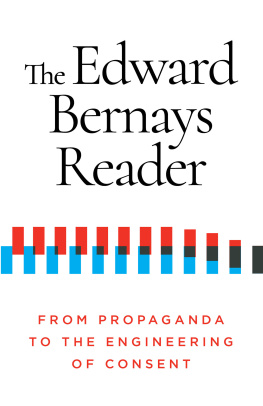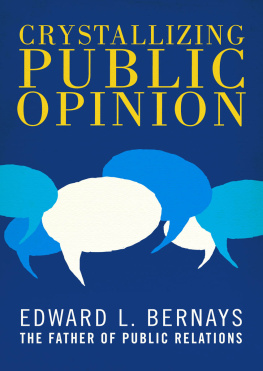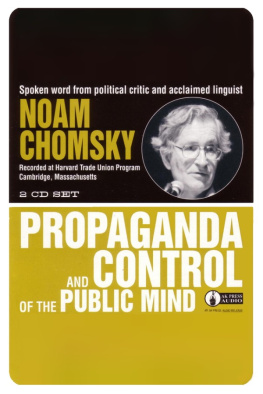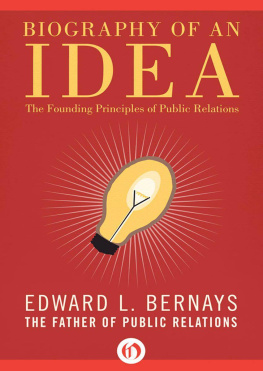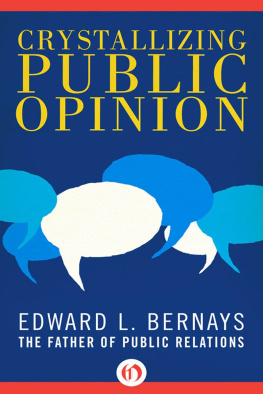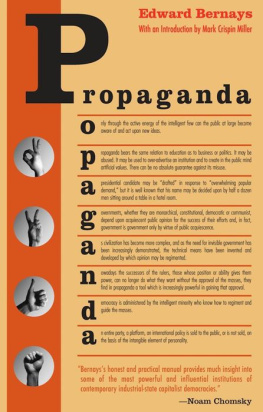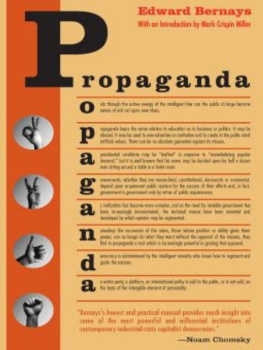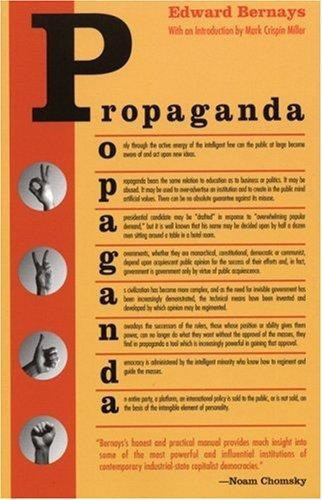Bernays - Propaganda: with an introduction by Mark Crispin Miller
Here you can read online Bernays - Propaganda: with an introduction by Mark Crispin Miller full text of the book (entire story) in english for free. Download pdf and epub, get meaning, cover and reviews about this ebook. City: New York, year: 1928;2005, publisher: Ig Publishing, genre: Politics. Description of the work, (preface) as well as reviews are available. Best literature library LitArk.com created for fans of good reading and offers a wide selection of genres:
Romance novel
Science fiction
Adventure
Detective
Science
History
Home and family
Prose
Art
Politics
Computer
Non-fiction
Religion
Business
Children
Humor
Choose a favorite category and find really read worthwhile books. Enjoy immersion in the world of imagination, feel the emotions of the characters or learn something new for yourself, make an fascinating discovery.

Propaganda: with an introduction by Mark Crispin Miller: summary, description and annotation
We offer to read an annotation, description, summary or preface (depends on what the author of the book "Propaganda: with an introduction by Mark Crispin Miller" wrote himself). If you haven't found the necessary information about the book — write in the comments, we will try to find it.
Bernays honest and practical manual provides much insight into some of the most powerful and influential institutions of contemporary industrial state capitalist democracies.Noam Chomsky
The conscious and intelligent manipulation of the organized habits and opinions of the masses is an important element in democratic society. Those who manipulate this unseen mechanism of society constitute an invisible government which is the true ruling power of our country.Edward Bernays, Propaganda
A seminal and controversial figure in the history of political thought and public relations, Edward Bernays (18911995), pioneered the scientific technique of shaping and manipulating public opinion, which he famously dubbed engineering of consent. During World War I, he was an integral part of the U.S. Committee on Public Information (CPI), a powerful propaganda apparatus that was mobilized to package, advertise and sell the war to the American people as one that would Make the World Safe for Democracy. The CPI would become the blueprint in which marketing strategies for future wars would be based upon.
Bernays applied the techniques he had learned in the CPI and, incorporating some of the ideas of Walter Lipmann, became an outspoken proponent of propaganda as a tool for democratic and corporate manipulation of the population. His 1928 bombshell Propaganda lays out his eerily prescient vision for using propaganda to regiment the collective mind in a variety of areas, including government, politics, art, science and education. To read this book today is to frightfully comprehend what our contemporary institutions of government and business have become in regards to organized manipulation of the masses.
This is the first reprint of Propaganda in over 30 years and features an introduction by Mark Crispin Miller, author of The Bush Dyslexicon: Observations on a National Disorder.
**
Bernays: author's other books
Who wrote Propaganda: with an introduction by Mark Crispin Miller? Find out the surname, the name of the author of the book and a list of all author's works by series.

